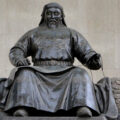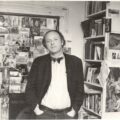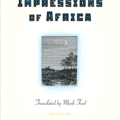Conversations: Tina Cane and Nick Courtright

Born and raised in New York City, Tina Cane serves as the Poet Laureate of Rhode Island where she is the founder and director of Writers-in-the-Schools, RI. Her poems and translations have appeared in numerous publications, including The Literary Review, Spinning Jenny, Tupelo Quarterly, Jubliat, and The Common.
Cane is the author of The Fifth Thought, Dear Elena: Letters for Elena Ferrante, poems with art by Esther Solondz, Once More With Feeling, and Body of Work. In 2016, Tina received the Fellowship Merit Award in Poetry, from the Rhode Island State Council on the Arts. She was also a 2020 Poet Laureate Fellow with the Academy of American Poets and is the creator/curator of the distance reading series, Poetry is Bread. Her debut novel-in-verse for young adults, Alma Presses Play (Penguin/Random House) was released in September 2021 and her new poetry collection, Year of the Murder Hornet, came out with Veliz Books in May 2022.
Nick Courtright is the author of The Forgotten World, Let There Be Light,and Punchline, and is the Executive Editor of Atmosphere Press. His poetry has appeared in The Harvard Review, Kenyon Review, Boston Review, The Iowa Review, AGNI, Gulf Coast, and The Southern Review, among dozens of others, and essays and other prose have been published by such places as The Huffington Post, The Best American Poetry, Gothamist, and SPIN Magazine. With a Doctorate in Literature from the University of Texas, Nick lives in Austin with the poet Lisa Mottolo and their children, William and Samuel.
Nick Courtright: I really enjoy how your book uses comedy—whether telling Sean Hannity to “please go away” or commenting on a church sign that says “Not today, Satan”—to deal with what is often troubling subject matter. From the pandemic to the past presidency to the general chaos of the world, in your poems there’s often levity that counterbalances the dreariness of the situation. Can you speak a bit about the use of humor in your poems, and how it can help us talk about the world’s shit more directly?
Tina Cane: Put simply: Humor Saves. I am a fan of humor as a survival mechanism, an ice-breaker, a rhetorical device, and vice in the face of virtue. It’s also an effective way to release pressure in a stressful situation. If the stressful situation is the world, and one is trying to comment upon it, then humor becomes inevitable—at least for me.
I once heard a comedian say something to the effect of: “Stand-up is scary, because if people don’t like your act, they basically don’t like your personality.” As a result, I often think: “If people don’t like a poet’s work, they basically don’t like that poet’s brain.” True or not, that makes me laugh. The goal is to find consolation where one can, and not at the expense of others—except, perhaps, Sean Hannity.
But seriously, my use of humor is an attempt to highlight the absurd—as in the absurdism embraced by Albert Camus, for example—which is about the tension between our quest for meaning and the harsh realities of a world that often seem to negate such meaning. I realize now how using humor in my poetry runs the two-fold risk of having someone hate my personality and my brain. Still, I am somewhat selfish when it comes to intention—I am making the only poems I can—and the response to them doesn’t play a role while I am writing.
Your collection, The Forgotten World, also has flashes of humor woven throughout. Like the title “American Idiot,” and like the poem, “The Story of the Rug,” which reminds me of my own time in Morocco and the attendant ritual that is the-buying-of-the-rug from an enthusiastic vendor, well-versed in the art of flattery and expedient comradery. It’s reminiscent of money nexus—like in Hemingway’s The Sun Also Rises—in which the outsider’s relationship is predicated on commerce.
Still, your speaker is self-aware. In response to the rug-seller’s assertion “that we are brothers now,” he knows “He is not your brother. /He wants to sell you a rug, / he wants to sell you all of the rugs.” The speaker also has no illusions about his own volition, “So of course you buy,/”because there is no not buying, / not when you are a coward.”
That had me laughing and wincing in recognition, as did the notion, a few lines later, that even if the speaker could give the rug away, it would “never leave” him, because he is “no one’s brother.” The rug, like history (like a curse, even!) remains ever-present—no amount of buying or giving away would eradicate its trace. This brings me to the thread of self-consciousness and culpability that runs through this work. Can you discuss the tension between having access and agency while remaining an outsider? What is the draw?
NC: Oh yeah, and there’s definitely no real brotherhood here, except for the brotherhood that asks you for Taco Bell money and eats all the cereal in your pantry. This brother leaves cigarette butts scattered about your patio. There’s something vaguely threatening about that, like, you are family so you have to accommodate them—buy the rug—even though you don’t want to. An obligation. And it would take courage to walk away from that, the courage of cruelty, like in Amy Hempel’s “In the Cemetery Where Al Jolson Is Buried,” where she abandons her dying best friend so she can drive away and feel the wind in her hair. It’s brutal, and selfish, and horrible, but also brave.
And I think that touches on the question you ask here, about self-consciousness and culpability, about access and agency. When you are traveling, especially to a country that has been negatively impacted by the encroachment of whiteness—i.e. pretty much anywhere but Europe—the conscious white person has to reflect on his/her own generational responsibility for corrupting the existing culture. Like building a church on top of an Incan temple, outlawing the use of native languages, etc., with those only being comparatively mild cultural examples rather than the violences that pockmark the entire history of the colonizing and domineering West.
And when I travel, I can’t help but feel like a colonist myself, planting my flag everywhere, even though I super very much don’t want to be that. That’s where the accommodation comes in, where my silence and respect—and let’s be honest—my culpability and shame, come in. I want to learn and understand what the world has to offer, and I want to be invisible while doing it, so as to not add to the legacy of invaders who’ve jacked everything up. Whether in Kenya, Peru, Cuba, Cambodia, or any number of other places, I’ve felt this desire to hide, but I can’t hide, and because I can’t, I have to be visible, and make my presence a sort of conscious apology to those cultures on behalf of empire. Thus, I am friendly, I try to smile, I buy what they’re selling. Because I don’t know what else to do. So, I have access, but do I really have agency? I’m playing a part, and it’s one that has been written in the drama of humanity over hundreds of years.
And this, of course, reminds me of your wonderful poem “Empire,” in which you grapple with some of the same issues, but then make a turn towards the documentation of one’s own mind, and how historical conceptions of empire affect the domestic “empire” of parenthood. You begin:
History’s always showing me men on boats and women in houses
but memory is a poet not an historian and I must be victor
of my own mind to tell my stories of conquest and demise
I love how you turn history on its head with this. What the past has shown us doesn’t have to be destiny. You forge your own path through the universe, yet later in the poem “confess to a lack of courage” when it comes to capturing the history of your own memories. But then, just when it seems we’re going to succumb, you say that the memory most worth preserving is that of your son flipping his skateboard on a curb in New York. It’s beautiful, the turn from the massive to the intimate and personal, the literal empires of the world to the empire that is one’s own familial circumstance, and the love that comes with it. How in your work do your own personal family connections inform your understanding of the wider world?
TC: My “own personal family connections” were pretty fractured growing up, which I suppose prepared me to understand our wider, fractured world. There’s a line by Neruda: “If you ask me where I come from I have to start talking with/ broken objects,” which will serve as an epigraph to a new collection I am working on, and which captures some of what I mean. The family I have made with my husband and our three children is an explicit act of resistance against that fracturing. Like many, I feel a tremendous sense of emotional responsibility as a parent to be present, to keep the channels open, to be persistent in my unconditional love. I didn’t always have that coming up, but I got enough of it to know what it looks like. I don’t always succeed, but that is actively what I am striving for—even in my poetry.
In many respects, it’s both personal and political, which is why a poem like “Empire” begins with “men on boats” and “women in houses,” but ends with my son and his skateboard. I don’t believe the personal can be parsed from the political. In my mind, empathy is the antidote to empire—even if control and expansion are universal themes we humans keep repeating. Our current political climate isn’t really about politics, but rather alienation and fear—on the part of those historically in control around their increasing irrelevancy, confusion about what it means to be a human being.
Poetry has much to teach us about being human and humane. I recently remarked to a group of students, “Poets are not better people, but engaging with poetry make us better people.” I don’t mean this in a smug or precious way, but any time we consent to receive what others wish to share—whether it be art or food—we open ourselves to their humanity.
That’s, perhaps, why the speaker in your poem feels beholden to buy the rug. The transaction is laden with complicated histories, but there’s a weird understanding there. Both parties are implicitly aware of the baggage; the exchange acknowledges its heft.
Regarding “heft,” your poem “My Mother Shaving Her Legs,” depicts a mother who never “knows when it’s time to get rid of things,” whose “artifacts of memory” highlight the tensions between (im)permanence and disappointment. Can you discuss the speaker’s itinerant tendencies in relation to that friction?
NC: That’s one of the most personal poems in the book for me, and I was actively nervous when my mom came to visit and read it from the proof copy. I was worried she’d be upset, but I think she knew I was trying to speak a truth about the desire to find comfort in the stowing away of items, to create a safe nest amongst the possessions and accumulations of a life. She also probably understood what I said about how all children are disappointments to their parents, haha. Even the child who is a source of pride probably doesn’t always pick up the phone, or send the right gift on Mother’s Day. So even with the criticism of the parent trying to hold onto too much, the child fails to do right by the parent who has almost certainly made innumerable sacrifices for the child. The poem in the end spreads the guilt around.
And I do think you point out an interesting friction point here: that of the parent who keeps every artifact in a desire to maintain the past, and the book’s speaker who can’t hold still, and who reaches for one experience after another, a body careening through space, accumulating nothing but memories. All children are in some way a reaction to their parents, and the speaker’s itinerant yearning for the new is in direct opposition to the clutching done by the parent; it’s all polarity, and I can see a future in which I am the one holding on, my children crafting their own lives while I grasp for the familiar. Or, they want to remain close to home, and I react by flying to Bhutan or something.
But to talk about another kind of parenthood altogether, I want to ask you about the work you do to support literature beyond your own craft. You run the awesome Poetry Is Bread reading series, and also spearhead a number of admirable initiatives as Poet Laureate of Rhode Island. I’m always fascinated by the “adjacent” elements of a life of literature, how the act of writing actually is such a small part of being a champion of writing. Fill me in on what you do for literature, and how you see these aspects of your literary life working in concert with each other?
TC: Like being a parent, my role as poet laureate has been a gift which has allowed me to connect with people in new and different ways. I’ve learned for the first time that with a title comes access. That access has made it easier for me to bring my ideas to fruition—like establishing a youth poet laureate program for my state, and starting the Poetry-in-Motion, RI program which puts monthly poems on buses state-wide. Poetry is Bread, my distance reading series on Facebook and Instagram began in April 2020, when the world shut down and National Poetry Month was effectively canceled. It was a small, concrete gesture I could make in a virtual way to continue sharing poetry during that strange and scary time. That daily ritual—since there was a new poet every morning for the first 80-something days—helped to keep me grounded, for while the days ran together, it felt like each new day could bring some unexpected sadness or horror.
Being a “champion of writing,” as you put it, is really about bringing everyone along for the ride. I’ve spent most of my writing life working in a vacuum, in obscurity, tending to a lot of things other than my own poetry. It’s been a deep joy for me to use my post as poet laureate to showcase and celebrate fellow poets, to create possibilities for people to share their work.
Writing requires solitude—if you can find it—but it also requires readers. It wasn’t easy for me to get my work published most of the time, because I had no community or connections. So, this title was a privilege I wanted to share in as many ways as I could think of. In that respect, these “adjacent elements” of my literary life are sometimes like parenting: You get what you give.
I wonder how you, as the founder and CEO of Atmosphere Press, manage to balance the varied
aspects of your own literary existence. Atmosphere has a full staff and publishes in every genre—poetry to religion, from nonfiction to YA. That’s quite an operation to manage. What has the publishing world taught you about poetry and/or the business of writing?
NC: Thanks for your question—this co-interview has been a pleasure! And you’re right that Atmosphere Press is quite an operation to manage, as we’re now publishing more than 300 books a year. Thankfully, I have a remarkable team that helps every step of the way, and keeps me from losing my mind. That’s been one of the most heartening parts of the whole endeavor: just being able to work not just with authors, but with other people who care about writing and books in a way beyond their own creation of text. I think writing can be a reclusive exercise, so anything that helps it throw the doors open to the wider world of creation—whether it be through designing book covers, making the words look good on the printed page, or trumpeting news of a new release to a prospective audience…it’s all part of supporting art and the creative act, and it’s a privilege to be able to be a part of that. Much better than a real job, haha.
One thing, though, that running a press has taught me, and how it’s affected my own view of poetry, is that in the end, there is one person who stands to gain the most from the creation of art. And it’s not the reader or the viewer. It’s the artist, the writer who’s constructing an artifact one word at a time. I don’t view my own poetry as a means to some sort of capitalist end, or to achieve a broad readership, because the real reason I do it is for my own sense of fulfillment, and arriving at a better understanding of my view of the human experience. I’m the one with the most to gain. And I think that’s the case for all writers: we do this because it’s bringing something to our lives, and, hopefully, that act of deliverance is bettering our worlds and making us more content human beings.
That’s why, when I founded Atmosphere Press, I really wanted it to be an author-centric operation, one that strives to make the author feel heard and valued and fulfilled throughout the process and when he or she has that first print proof in hand. Because if we make that a more rewarding experience, and that author now feels that little amount better about their life here on earth, then that’s a good act, and it’s an honor to contribute to that.





